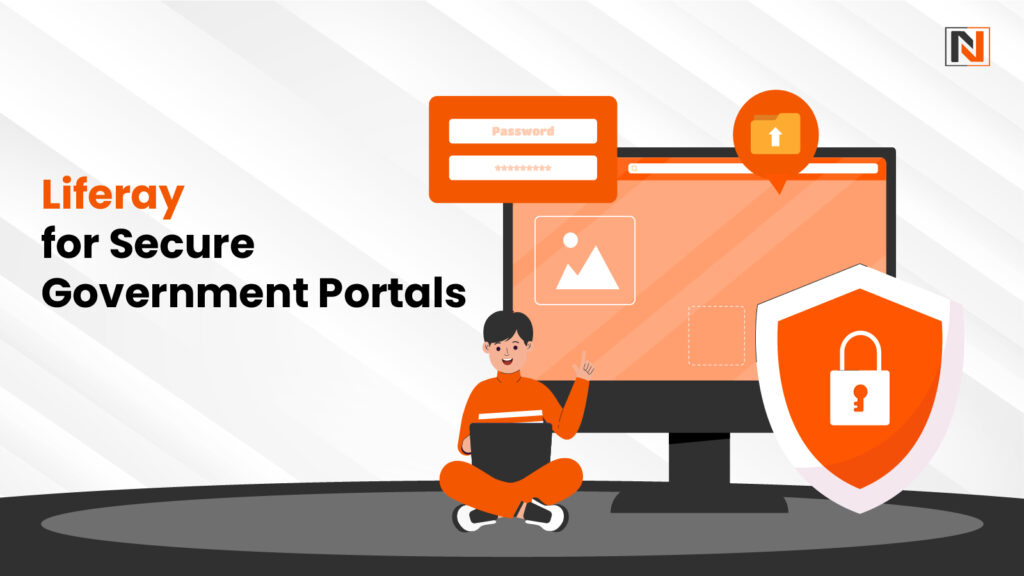
Government agencies worldwide are accelerating their digital transformation efforts to improve citizen services, enhance transparency, and ensure secure information exchange. However, with increasing cyber threats, secure government portals are no longer optional, they are a necessity.
Liferay DXP has emerged as a leading platform for building highly secure, scalable, and user-friendly government portals. With its robust security framework, compliance capabilities, and seamless integration features, Liferay empowers agencies to deliver trusted digital experiences while safeguarding sensitive data.
In this blog, we’ll explore how Liferay ensures government portal security, the key features that make it ideal for public sector use, and why it stands out as the platform of choice for secure digital transformation in government.
The Need for Secure Government Portals
Government portals handle vast amounts of confidential data - citizen records, financial transactions, legal documents, and more. A single security breach can lead to severe consequences, including identity theft, fraud, and loss of public trust.

Key challenges government agencies face include:
- Data Privacy & Compliance – Meeting regulations like GDPR, FedRAMP, and local data protection laws.
- Cyber Threats – Preventing phishing, DDoS attacks, ransomware, and unauthorized access.
- User Authentication & Authorization – Ensuring only authorized personnel access sensitive data.
- Secure Collaboration – Enabling safe communication between departments and citizens.
This is where Liferay government portal solutions come into play, offering a secure, compliant, and adaptable platform for modern governance.
DID YOU KNOW
According to the report, The digital experience platform (DXP) market was valued at $11.2 billion in 2023 and is projected to grow at a CAGR of 16.1%, reaching $41.7 billion by 2032.
How Liferay DXP Security Features Protect Government Portals
From robust encryption and multi-factor authentication to real-time threat monitoring, Liferay DXP delivers a fortified framework that keeps government data secure and operations compliant.
1. Enterprise-Grade Security Framework
Liferay DXP is built with security at its core, offering:
- Role-Based Access Control (RBAC) – Define granular permissions to restrict access based on user roles.
- Multi-Factor Authentication (MFA) – Add an extra layer of security with OTP, biometrics, or smart cards.
- Single Sign-On (SSO) Integration – Streamline secure access across multiple government systems.
- IP Whitelisting & Geofencing – Restrict portal access to specific locations or networks.
2. Compliance with Government Standards
Liferay adheres to strict security certifications, including:
- FedRAMP (U.S. Federal compliance)
- GDPR (EU data protection)
- HIPAA (Health data security)
- ISO 27001 (Information security management)
This ensures that Liferay government portals meet regulatory requirements out of the box.
3. Secure Data Encryption & Protection
Liferay adheres to strict security certifications, including:
- End-to-End Encryption – All data in transit and at rest is encrypted using TLS and AES standards.
- Audit Logs & Monitoring – Track every action for accountability and forensic analysis.
- Data Masking & Anonymization – Protect sensitive citizen information from unauthorized exposure.
4. Advanced Threat Detection & Prevention
Liferay integrates with leading security tools to detect and mitigate risks, including:
- Web Application Firewalls (WAF) – Block SQL injection, XSS, and other OWASP Top 10 threats.
- AI-Driven Anomaly Detection – Identify suspicious login patterns or data breaches in real-time.
- Automated Security Patching – Regular updates protect against newly discovered vulnerabilities.
Real-World Use Cases: Liferay in Government
Governments worldwide leverage Liferay DXP to build secure, citizen-centric portals from streamlined service delivery to fortified internal collaboration. Below are a few examples of how Liferay transforms public-sector digital experiences.

1. Citizen Service Portals
Many governments use Liferay DXP to create unified citizen portals where users can:
- Apply for permits & licenses
- Pay taxes & utility bills
- Access public records securely
Example: A European city deployed a Liferay government portal to streamline citizen services, reducing processing times by 60% while ensuring GDPR compliance.
2. Secure Intranets for Government Employees
Liferay powers internal collaboration platforms for agencies, offering:
- Secure document sharing
- Role-based departmental workspaces
- Encrypted messaging & workflows
3. Digital Transformation for Defense & Public Safety
Military and law enforcement agencies use Liferay’s secure government portals to:
- Share classified intelligence securely
- Manage personnel records with strict access controls
- Coordinate emergency response efforts
Why Liferay Stands Out for Government Digital Transformation
Liferay DXP combines unmatched security, regulatory compliance, and citizen-centric design, making it the ideal platform for governments to drive secure, scalable, and future-ready digital transformation.
1. Customizable Without Compromising Security
Unlike rigid legacy systems, Liferay allows agencies to tailor portals to their needs while maintaining Liferay DXP security best practices.
2. Seamless Integration with Legacy Systems
Government IT ecosystems are complex. Liferay’s API-first approach ensures smooth integration with:
- Identity management systems (e.g., Active Directory, Okta)
- CRM & ERP platforms
- Payment gateways & document management systems
3. Scalability for Growing Demands
As citizen needs evolve, Liferay government portals can scale effortlessly, handling millions of users without performance degradation.
4. Future-Ready with AI & Automation
Liferay is incorporating AI-driven features like:
- Chatbots for instant citizen support
- Predictive analytics for fraud detection
- Automated workflows for faster service delivery
Conclusion
In an era where cyber threats are escalating, governments cannot afford to take risks with their digital platforms. Liferay DXP provides a secure government portal solution that combines enterprise-grade security, regulatory compliance, and seamless user experiences.
By leveraging Liferay for secure digital transformation, government agencies can:
- Enhance citizen trust with robust data protection.
- Streamline operations with secure, automated workflows.
- Stay compliant with evolving regulations.
- Future-proof their digital infrastructure.
For decision-makers evaluating a secure government portal platform, Liferay DXP offers the perfect blend of innovation, security, and reliability, ensuring that digital governance remains both efficient and impervious to threats.
